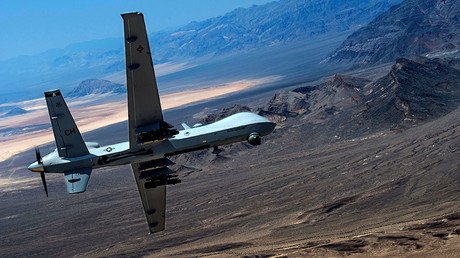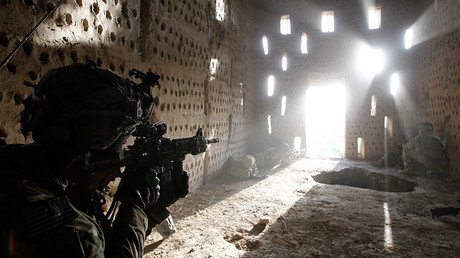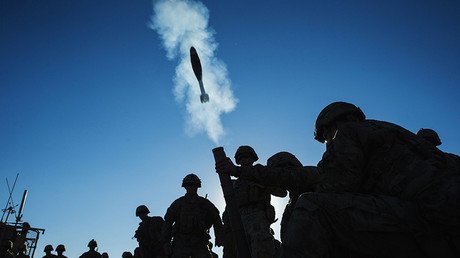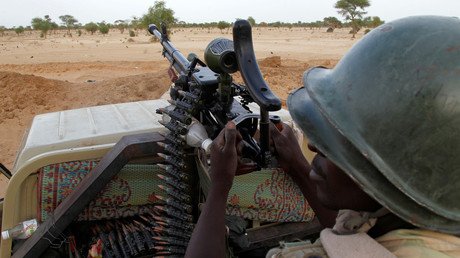US deployment of drones in Niger is a ‘big problem for Africa’
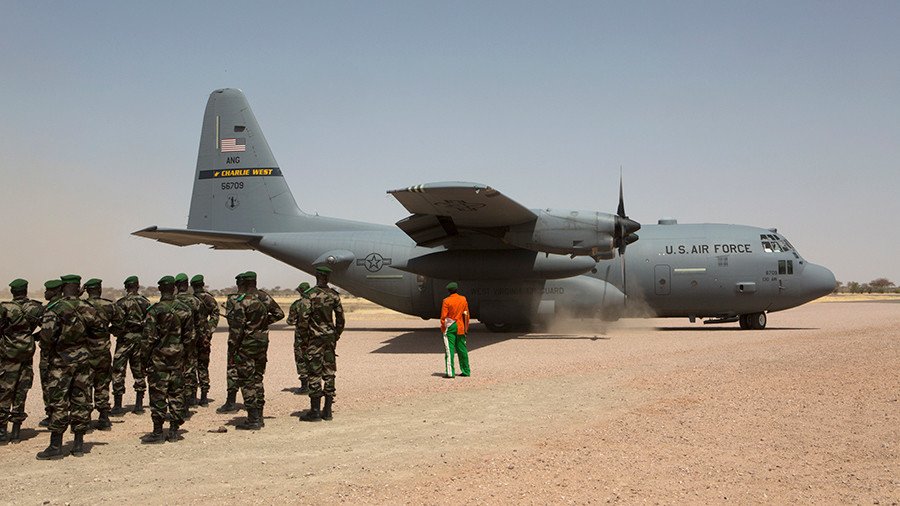
The Niger government’s recent decision to allow American drones over its territory will accomplish little in the fight against terrorism, Africa analyst Lawrence K Freeman told RT, because it lacks a strategy that deals with the issues in the region.
On Thursday, Niger officials announced they would allow the Pentagon to operate armed drones, or unmanned aerial vehicles (UAVs), out of the country’s capital, Niamey. The drones will be used to conduct strikes on terrorist groups like al-Qaeda and its affiliates that operate along the country’s border with Mali. The move would allow the US military to significantly expand its reach in West Africa.
But Africa affairs analyst Lawrence K Freeman says that drone strikes alone will be unlikely to change the region’s jihadist landscape, which is being driven by more than just a handful of key operatives.
“So, this is a big problem for the Niger government, for West Africa, and for all of Africa – [that Niger] is now allowing the US to carry out these kind of military attacks,” Freeman told RT. “What is missing from this, is a strategy.
“There has not been a strategy now for many, many years through several presidential administrations, including the current one.”
The thinking in Washington is that by taking out key figures in the terrorist chain of command, this will help bring down the whole network. This approach has worked against some militant groups in the past but is unlikely to work here, Freeman said.
“The Sahara Desert itself, which goes all the way up to the Mediterranean, this is larger than the US. The Sahel desert stretches from the east end to the end of Africa. It is impossible to patrol all these areas. Therefore, you might pick off a few people here and there, which is useful, but you’re not going to stop the problem of terrorism.”
US drone strikes under presidents George W. Bush, Barack Obama and now Donald Trump have claimed thousands of innocent lives across the world, Freeman said, with no tangible reduction in terrorism. Indeed, a New York Times report back in 2012 claimed that the Obama administration, which was conducting operations in Pakistan, Afghanistan, Yemen and Somalia, considered “all military-age males in a strike zone as combatants… unless there is explicit intelligence posthumously proving them innocent.”
Now it seems the US wants to export that model to West Africa.
“The African countries now are being pressured by the West and by the Trump administration to allow these armed drones and another military buildup, and I am sure it is going to cause them many, many internal problems,” Freeman said. “And it will not solve the problem of terrorism, and that is a sad point about it.”
Indeed, Freeman added, the collateral damage from these attacks may even give the terrorists a propaganda boost, though the chronic levels of poverty and underdevelopment in the region already provide a fertile ground for extremist recruitment.
“If you take northern Mali, Niger, Chad – I have been in Chad, I have been in northern Nigeria – these places are totally undeveloped. Therefore, they are perfect further bases for Boko Haram, for al-Qaeda, for ISIS (Islamic State) and others to operate, recruit and establish bases.
“So why not to take that territory from them? Why not to occupy with development, with cities? This will actually move the terrorists out. And the Europeans now in an existential crisis, because of the hundreds of thousands of Africans that have migrated, plus the hundreds of thousands that appeared to be in Libya slaves? And this is all because Africans in West Africa cannot live there anymore. They are desperate to get out, because there are no jobs, and there is no hope for the future.”
Instead of dropping bombs, the analyst suggested, the United States and Europe should make further investments in the region, as China is doing.
“This is the solution, and the US should join that effort, rather than carry out these piecemeal military attacks which in the long run are not going to work and may further destabilize these countries, as US military troops are not going to be welcome all over Africa.”
